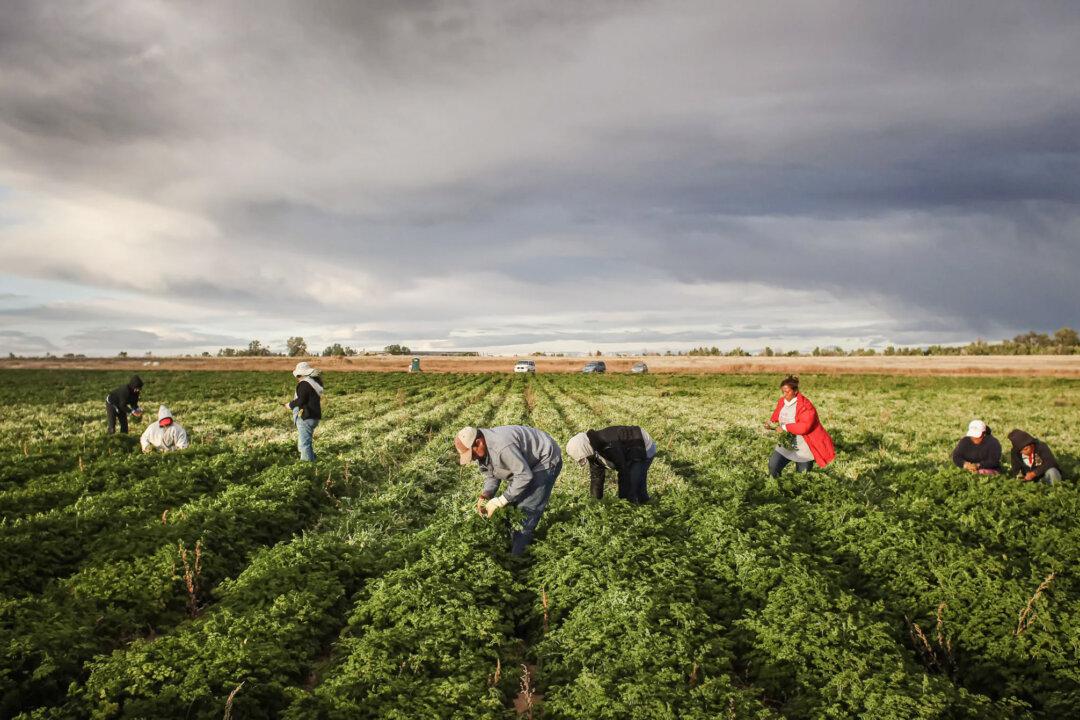A federal judge in Georgia on Aug. 26 blocked a new labor rule that would give foreign farm workers on temporary U.S. visas certain rights and protections.
A coalition of 17 states led by Kansas, Georgia, and South Carolina, alongside the Georgia Fruit and Vegetable Growers Association and a Georgia farm, argued that a recent Department of Labor (DOL) regulation violates the National Labor Relations Act (NLRA), a 1935 federal law that allows certain employees to unionize.





